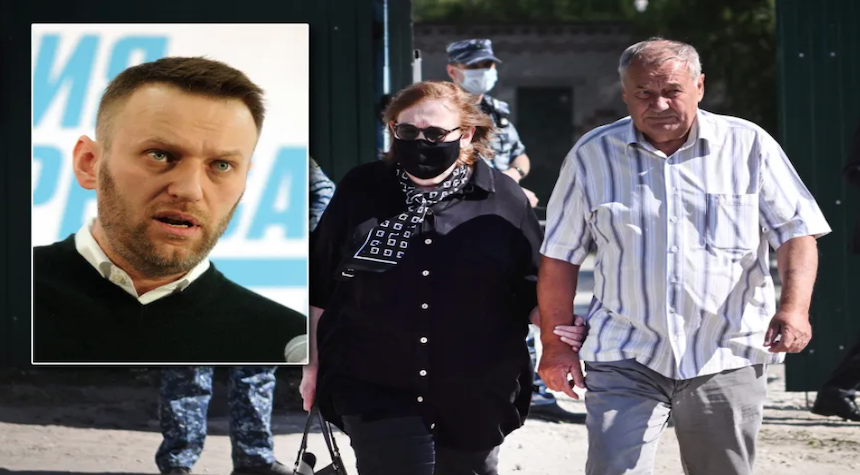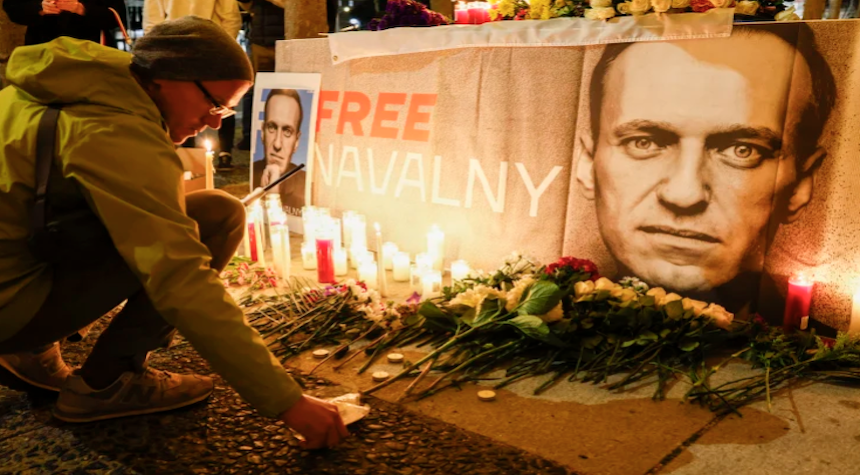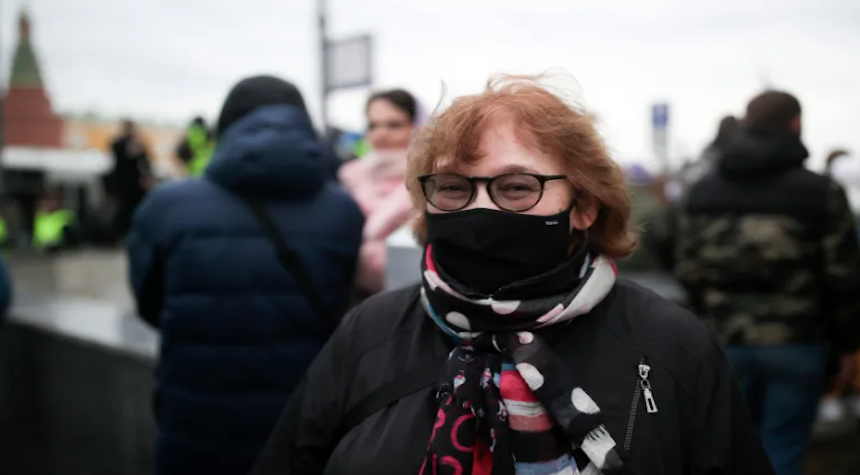In a tragic twist of events, Russian Dissident Alexei Navalny passed away while imprisoned at a Russian penal settlement. His death announcement left behind a trail of speculations, unanswered questions, and worldwide outrage.
It has now been reported that the Russian Government told Navalny’s mother that his death was caused by “sudden-death syndrome”.
His team reported that Alexei Navalny’s mother learned on Saturday that Russia’s most prominent opponent leader was suffering from “sudden-death syndrome”. The body of the opposition leader would not be given to his family until an inquiry was complete.
 Navalny, 47, a former lawyer who was serving a 3-decade sentence at Kharp’s “Polar Wolf” colony, died after falling unconscious on Friday during a walk.
Navalny, 47, a former lawyer who was serving a 3-decade sentence at Kharp’s “Polar Wolf” colony, died after falling unconscious on Friday during a walk.
Sudden death syndrome can be described as “a term that encompasses a variety of cardiac syndromes which cause sudden cardiac arrest or death.”
The exact location of Navalny’s corpse is unknown at this time.
Russia’s claims about “sudden death syndrome” are met with suspicion and skepticism. Conflicting reports on the location of the body have only added to the distrust. Other reports revealed that Navalny had bruises, which could indicate violent treatment.
According to an anonymous paramedic who claimed to be employed by the morgue, Novaya Gazeta Europe reported that the bruises were consistent with someone being held down during a seizure.
 The anonymous paramedic said that the body of a person who died in prison was usually taken straight to Glazkova Street’s Bureau of Forensic Medicine, but this time it was taken to a clinical hospital.
The anonymous paramedic said that the body of a person who died in prison was usually taken straight to Glazkova Street’s Bureau of Forensic Medicine, but this time it was taken to a clinical hospital.
Officially, the Kremlin claims that Navalny was knocked out after he reported feeling “unwell”. This happened after a short walk. He died soon after.
Navalny’s spokesperson Kira Yarmysh has challenged this narrative, accusing the Russian government of killing him.
Some have said that the death of the dissident was meant to send a signal.
Navalny was not deliberately killed, but he died from calculated cruelty. Putin was responsible for this death in some way. You have to turn a blind eye a little bit to ignore that he passed away thirty days before Putin won his triumphant reelection. It is also problematic that his death occurred on the same day as his wife’s scheduled speech at the Munich Security Conference. We must assume that Navalny’s death was not accidental if we do not consider the small chance of it being a natural death.
We can assume that Navalny was sent to the Russian punishment camp to send a signal because he could have been standing too close to windows or eating a bad curry at any point in the past decade. The message to internal opponents is “I don’t care how many Western awards you win. If you color outside of the lines, I will kill you.” The message to the West is “F*** you, your democratic opposition.” My house, my laws.” To the Russian “establishment”, opposition that is likely to be coalescing within the oligarchy or security services: “I just slapped the darling of Westerners and told them FOAD. Do you think that anyone would care if you were killed?
The world is watching and the demands for accountability and truth are becoming louder. Navalny will be remembered as a milestone in the fight against authoritarianism.


